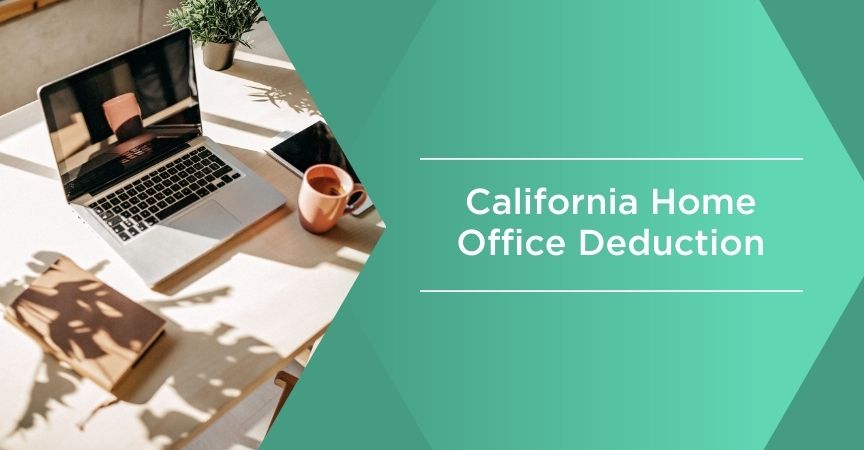The coronavirus pandemic has changed the day-to-day realities of work in so many different ways, but it’s really helped to usher in the “Era of Remote Work” and work from home opportunities.
Millions of people in California alone have gone from going to the office every day to working from their kitchen table or spare bedroom.
In light of this new reality, plenty of taxpayers are going to want to learn the ins and outs of the home office tax deductions available in California – and that’s what this quick guide aims to help with!
Quick Overview of the California Tax Deduction for Home Offices
California does in fact offer the ability to claim home office deductions on state tax filings in certain circumstances, but not everyone is going to be eligible for these deductions (referenced below).
These deductions were really codified under The Taxpayer Relief Act of 1997, and for these deductions to be available to taxpayers two main criteria had to be met:
- The home office space must be used by employees that do not have other dedicated spaces to do their work provided by their employer and
- The taxpayer is not renting any part of the home from the employer, either
The pandemic has shifted the goalposts a little bit when it comes to these key criteria, especially since the realities of “telecommuting” when these tax laws were written were significantly different than they are today.
Who’s Eligible for This Deduction?
Anyone that works from home has the opportunity to take advantage of this California home office deduction, though traditionally only self-employed, freelancer, and small business owners running a business out of a spare bedroom filled out this section on tax forms.
Employees who have not leveraged the home office deductions in California are going to want to make sure that they file their home office expenses under the “Miscellaneous Itemized Deductions” section on the California tax paperwork.
Pretty much anything you purchased to outfit your new home office workspace can be written off, including (but not limited to):
- Anything for a dedicated workspace (including a new desk and chair)
- Electronics you use for work (including computers, monitors, mobile devices, etc.)
- Office supplies that your employer traditionally provided
… And anything else you’re using in the regular course of a workday (for work purposes, of course).
Just make sure that you hold onto your receipts.
You’re going to want to make sure that you can document each deduction. It’s not a bad idea to run this by a CPA before you file your California home office deductions, either – just to make sure you’re in full compliance, of course.
Does It Apply to Federal Taxes, Too?
As a general rule, those that are self-employed or running a business out of their home office space are going to have no trouble whatsoever taking advantage of this deduction.
Those that work for someone else (W-2 wage earners), however, are not likely going to be able to enjoy the home office deduction on their federal taxes – even if they have been working primarily from home since March of last year.
W-2 employees (unless you have a specific exemption, including performing artist exemptions, local or state government exemptions, military exemptions, etc.) are not going to be able to write off their home office deductions at the federal level most of the time.
As highlighted above, it’s not a bad idea to run these kinds of deductions past a CPA or tax preparer before you submit them to the state government or the IRS.
Customized Tax Preparation Help For Sole Proprietors and Small Businesses
We’d love to sit down and talk about your tax situation and how you can protect as much of your income as possible – legally, ethically, and responsibly.
If you’d like personalized help for navigating the often confusing tax situation post-coronavirus, please don’t hesitate Robert Hall & Associates at your earliest convenience via the webform here, by phone at 818-242-4888 or reach me directly via email at rony@web54506.codescake.net.

